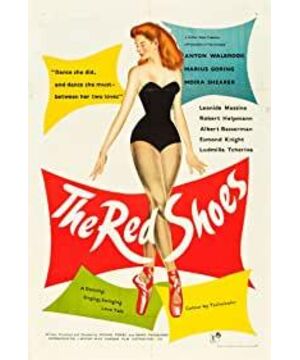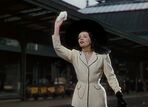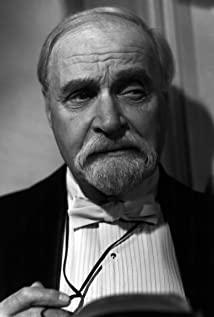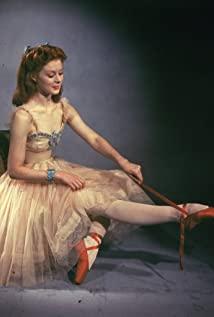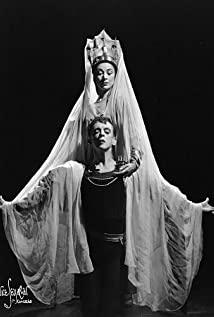Author: Tang Yu China Dubbing Network 2017-09-01
"Neijin Film" is a product of the "Cultural Revolution". When almost all the literary and artistic units and film studios in the country stopped production and started the revolution, only the Shanghai Film Translation Factory (hereinafter referred to as the Shanghai Translation Factory) smashed the "Gang of Four" from the beginning of 1970 to 1976. They have been busy so far, and they "use the factory as their home", working day and night. The films we saw later, such as "Jane Eyre", "Notre Dame de Paris", "Blue Bridge", "Revisiting the Dream", "The Sound of Music", etc., were all translated as internal reference films at that time.
These internal reference films were all translated by Shanghai Translation Factory, which became famous all over the country with the birth of these internal reference films. However, it took a lot of trouble to determine which film studio would translate the internal reference films. That year, three voice actors from Shanghai Translation Studio, Changying Studio and Bayi Film Studio, led by Li Zi and Xiang Junshu respectively, came to Beijing to start a "ring competition" on a certain film segment selected by "central leaders". ", they dubbed the same plot, and after the recording was judged by the "judges", the Shanghai Translation Factory won. Since a large number of films needed to be dubbed after that, it was even considered at that time to transfer all the cast and crew of Shanghai Translation Factory to Beijing for work. Due to the difficulty of implementing the plan, the final decision was made in Shanghai, and the film was sent to Beijing after the translation was completed. Because the central leaders watched the film "eagerly", the translation time was short and urgent, and the film was often sent to the special plane at the last minute.
"The most tossing in the history of the translation of the internal reference film was the British film "Hong Lingyan". After the film was introduced, the leftists in Beijing threatened: 'Why must people from the Shanghai Translation Studio be matched? People from Beijing can also perform revolutionary plays. Dub!' As a result, the movie was so well dubbed by 'Beijing's revolutionary actors', that he just gave "Hong Lingyan" a revolutionary flavor. After the first dubbing was completed, Jiang Qing personally watched it and felt that it was really not good. After that, the dubbing task of "Hong Lingyan" was handed over to Shanghai Translation Factory. The second version dubbed at Shanghai Translation Factory was cast by Shanghai Film Studio actor Zhong Shuhuang as Lermontov, Li Zi as the heroine, but I don't know why this second edition failed to pass in Beijing again. So I changed horses again and released Qiu Yuefeng, who was in the woodworking workshop, to play the role of 'Lermontov'. This is considered to have passed the test in Beijing." "Inside the Shed and Outside the Shed: The Glory and Sorrow of Shanghai Film Studio")
More than ten years ago, when I was at Mr. Li Zi's house, she asked me, "Do you know about the dubbing of "Hong Lingyan"?" I said, "I don't know." So Mr. Li Zi talked about the "interesting things" that happened before and after the translation of "Hong Lingyan". She said: ""Hong Lingyan" is a key film assigned by the superior. Under the historical background at that time, such a film must be dubbed by a comrade with good background, so the actor chose the feature film actor Zhong Shuhuang to play the role. Although my background is not good (Note: Teacher Li Zi was never able to join the Party before the Cultural Revolution due to his background. After the Cultural Revolution, the country solved the difficulties of intellectuals joining the Party. Teacher Li Zi, as a typical example, was officially approved to join the Party in the early 1980s, the second page of Jiefang Daily. Once published the headline: "Li Zi Joins the Party"), but because it is the heroine, I will play the role. Who knows that after the film is completed, Jiang Qing is very dissatisfied, so he decides to change the voice actor of the male lead. The female lead is still It was played by me. At that time, there was a lot of controversy in the factory as to whether the male lead should be dubbed by Qiu Yuefeng or Bi Ke. This is a reworked film, and in order to ensure the quality, it was finally decided that Qiu Yuefeng should be the male lead dubbing."
Teacher Li Zi went on to say: "This dubbing version was approved in Beijing, and Jiang Qing proposed to meet the dubbing actor of "Hong Lingyan". After we went there, we waited left and right, but Jiang Qing did not come forward in the end, it was her cronies who met us ...Fortunately, Jiang Qing didn't see him, otherwise I won't be able to tell in the future." Regarding the fact that the translation team of "Hong Lingyan" came to Beijing, in December 2014, I visited Li Nian, Li Zi's younger brother in Beijing, and he said: " That time, Li Zi stayed in Beijing for more than 10 days. We asked her why she came to Beijing. Because of confidentiality, she refused to tell her family." Shanghai Translation Factory was a "secret factory" during the Cultural Revolution. The title of the film can't be mentioned, only its code name, not to mention the matter of letting Jiang Qing meet.
When Mr. Li Zi talked about the dubbing event of "Hong Lingyan", she talked about Qiu Yuefeng's dubbing accomplishments. Her admiration for Qiu Yuefeng from the bottom of her heart really surprised me. I didn't expect that Teacher Li Zi, who has the same profound artistic attainments, would be so humble. In addition, regarding Qiu Yuefeng's common saying that "the rhythm is good and can play with his back to the screen", Mr. Li Zi said: "There is no such thing. In fact, when an important scene was played, Qiu Yuefeng took off the mirror and moved to the screen. Go ahead and see (lips). He's very serious about art, and he's never going to be handsome."
"Hong Lingyan" is not a particularly classic film in the history of translation, but because Jiang Qing repeatedly tossed this translated film, this film is extremely special. According to the recollection of Jiang Qing's former secretary: "Jiang Qing was particularly fascinated by movies. Sometimes he watched two or three films in a row, and he was still not tired. Some films were watched over and over again. '" (from "The Essence of Literature and History", No. 11, 2009)
View more about The Red Shoes reviews


